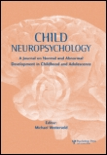
CHILD NEUROPSYCHOLOGY
Scope & Guideline
Empowering Educators with Cutting-Edge Neuropsychological Insights
Introduction
Aims and Scopes
- Neurodevelopmental Disorders:
The journal extensively covers research on neurodevelopmental disorders such as ADHD, autism spectrum disorders, and dyslexia, exploring their cognitive, behavioral, and emotional profiles. - Cognitive Assessments and Interventions:
A significant focus is placed on evaluating and developing cognitive assessment tools and interventions aimed at improving executive functions and academic outcomes for children with various developmental challenges. - Longitudinal and Cross-Cultural Studies:
The journal publishes studies that investigate cognitive and behavioral trajectories over time and across diverse cultural contexts, contributing to a better understanding of how different factors influence neuropsychological outcomes. - Clinical Applications:
Research addressing clinical practices in pediatric neuropsychology, including assessment methods and intervention strategies for children with neurological conditions or developmental disorders, is a core area of the journal. - Multidisciplinary Approaches:
The journal promotes interdisciplinary research that integrates insights from psychology, neurology, education, and social sciences to comprehensively address the complexities of child neuropsychology.
Trending and Emerging
- Executive Functioning and Self-Regulation:
There is an increasing emphasis on executive functioning and self-regulation across various contexts, including academic performance, social interactions, and behavioral outcomes, reflecting its critical role in children’s development. - Impact of Environmental Factors:
Research exploring how environmental factors—such as socio-economic status, parenting styles, and educational settings—affect neurodevelopmental outcomes is emerging as a significant theme, highlighting the interplay between environment and neuropsychology. - Interdisciplinary Approaches to Treatment:
Studies that adopt interdisciplinary approaches, integrating psychology, education, and health sciences to develop comprehensive treatment plans for children with neurodevelopmental disorders, are trending, indicating a shift towards holistic care. - Longitudinal Studies of Neurodevelopment:
There is a growing interest in longitudinal studies that track neurodevelopmental trajectories over time, which provide valuable insights into the long-term outcomes and influences on children's cognitive and emotional development. - Cultural and Contextual Validity in Assessments:
Emerging research focuses on the cultural and contextual validity of neuropsychological assessments, aiming to ensure that tools are appropriate and effective across diverse populations and settings.
Declining or Waning
- Traditional Cognitive Assessments:
There has been a noticeable decrease in studies focused solely on traditional cognitive assessments, as the field shifts towards more dynamic and ecological assessments that consider real-world functioning. - Generalized Neuropsychological Profiles:
Research that presents broad, generalized profiles of neuropsychological functioning without considering the individual differences or specific contexts of children is becoming less common, as there is a growing emphasis on tailored and precise assessments. - Focus on Single Disorders:
There is a waning interest in studies that examine single disorders in isolation. The trend is moving towards transdiagnostic approaches that explore overlapping symptoms and shared cognitive mechanisms among various conditions. - Historical Perspectives:
Papers that focus primarily on historical perspectives or reviews of past practices in pediatric neuropsychology are less frequently published, indicating a shift towards contemporary research and future directions. - Basic Neuroscience Research without Clinical Relevance:
Research that delves into basic neuroscience without clear implications for clinical practice or developmental outcomes in children is becoming less prominent, as the journal emphasizes applied research with practical applications.
Similar Journals

Cuadernos de Neuropsicologia-Panamerican Journal of Neuropsychology
Bridging theory and practice in cognitive health.Cuadernos de Neuropsicologia-Panamerican Journal of Neuropsychology is a premier open access journal dedicated to advancing the field of neuropsychology through the dissemination of high-quality research. Published by NEUROPSICOLOGIA CL in Chile, this journal has been a vital resource for the academic community since its inception in 2007. With a focus on various aspects of neuropsychological theory and practice, the journal aims to bridge the gap between research and application, addressing key issues in diagnosis, treatment, and rehabilitation of cognitive disorders. By providing a platform for innovative studies, systematic reviews, and compelling case reports, Cuadernos de Neuropsicologia plays an instrumental role in shaping the future of neuropsychology in the Pan-American region and beyond. Researchers, clinicians, and students alike will find this journal invaluable for staying informed on the latest trends and findings in their field.

Neuropsychological Trends
Unveiling the Trends Shaping Neuropsychological ResearchNeuropsychological Trends is a prominent, open-access journal published by LED EDIZIONI UNIV, based in Italy. Since its inception in 2007, the journal has dedicated itself to advancing research in the fields of neuropsychology and cellular neuroscience, catering specifically to the evolving trends shaping these disciplines. With the ISSN 1970-321X and an E-ISSN of 1970-3201, the journal provides a platform for multidisciplinary dialogue and exploration of neuropsychological phenomena. While ranked in the fourth quartile for both Cellular and Molecular Neuroscience and Neuropsychology and Physiological Psychology categories in 2023, the journal encourages innovative research that aims to enhance understanding and treatment of cognitive and psychological conditions. The convergence of years from 2011 to 2024 marks a significant period for contributions that inform clinical practice and theoretical frameworks. As researchers, professionals, and students engage with cutting-edge studies and reviews, Neuropsychological Trends serves as a vital resource for staying informed and fostering collaboration in the neuropsychological community.

NEUROPSYCHOBIOLOGY
Decoding Behavior: Insights from NeuropsychobiologyNEUROPSYCHOBIOLOGY, published by KARGER, is a leading academic journal that has been at the forefront of exploring the intricate relationships between neuroscience and psychological processes since its inception in 1975. With both an ISSN of 0302-282X and an E-ISSN of 1423-0224, the journal is renowned for its rigorous peer-reviewed articles and significant contributions to the fields of Biological Psychiatry, Neuropsychology, and Physiological Psychology. Its impact is reflected in its esteemed Scopus rankings, standing out in the 92nd and 81st percentiles in their respective categories. With a commitment to advancing understanding in mental health and neurological science, NEUROPSYCHOBIOLOGY is classified in the Q3 and Q1 quartiles, making it a vital resource for researchers, clinicians, and students alike. Based in Switzerland, the journal embraces a holistic approach to psychological research, bridging gaps between theoretical frameworks and practical applications, thus promoting impactful advancements in the understanding of the human mind.
Explore the latest findings and theories with NEUROPSYCHOBIOLOGY, where your work can contribute to the evolving landscape of neuropsychological studies.
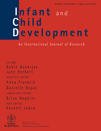
INFANT AND CHILD DEVELOPMENT
Empowering Practitioners with Groundbreaking FindingsINFANT AND CHILD DEVELOPMENT is a prestigious academic journal published by Wiley, focusing on the critical fields of developmental and educational psychology. With an ISSN of 1522-7227 and an E-ISSN of 1522-7219, this journal has established itself as a vital resource for researchers, practitioners, and students interested in the growth and cognitive development of infants and children. The journal has been an essential part of the academic community since its inception in 1996 and is projected to run until 2024. Currently categorized in Q2 for its field in the 2023 rankings, INFANT AND CHILD DEVELOPMENT ranks #191 out of 360 in developmental and educational psychology according to Scopus, placing it in the 47th percentile overall. The journal offers a mix of open access options, ensuring that groundbreaking research is freely available to a global audience. With its commitment to enhancing the understanding of early development, this journal plays a pivotal role in advancing the science and application of developmental psychology, making significant contributions to both policy and practice.

Applied Neuropsychology-Adult
Exploring the intersection of cognition and behavior.Applied Neuropsychology-Adult is a premier journal published by Routledge Journals, Taylor & Francis Ltd, dedicated to advancing the field of neuropsychology with a particular focus on adult populations. Since its inception in 2012, this journal has been a vital platform for disseminating innovative research, reviews, and clinical insights into the cognitive and psychological processes that influence adult behavior and functioning. With an impressive Scopus ranking, including Q3 status in both Developmental and Educational Psychology and Neuropsychology and Physiological Psychology, it demonstrates a commitment to high-quality scholarship that informs both clinical practice and theoretical understanding. Researchers, clinicians, and students alike will benefit from the journal's commitment to open access, providing broad access to valuable knowledge in the domain of neuropsychology. As it converges towards its 2024 milestone, Applied Neuropsychology-Adult continues to be an essential resource for those seeking to deepen their understanding of neuropsychological processes and their application in real-world settings.

PSYCHOPHYSIOLOGY
Exploring the Mind-Body Connection.PSYCHOPHYSIOLOGY, published by WILEY, stands as a leading journal in the intersection of psychology and physiology, contributing significantly to our understanding of the brain and body connection since its inception in 1964. With an impressive scope covering areas such as biological psychiatry, cognitive neuroscience, and neuropsychology among others, the journal has earned multiple Q1 rankings in these critical domains as of 2023, reflecting its high impact in the field. The journal ranks particularly well in categories such as Experimental and Cognitive Psychology and neurology, indicating its status as a pivotal resource for professionals and researchers committed to advancing knowledge in psychophysiological studies. Furthermore, with an e-ISSN of 1469-8986, PSYCHOPHYSIOLOGY is accessible to a global audience, although it is not part of the Open Access movement, ensuring that its rigorous research remains a trusted source for academic excellence. By engaging with this journal, readers can expect to discover pioneering research and significant findings that push the boundaries of current understanding, making it an essential publication for those invested in the advancements of psychological and physiological sciences.
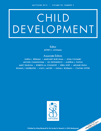
CHILD DEVELOPMENT
Advancing knowledge in child psychology and education.CHILD DEVELOPMENT, published by WILEY, stands as a premier journal in the fields of developmental and educational psychology, education, pediatrics, perinatology, child health, and social work. Established in 1945, it has consistently maintained a strong impact, underscored by its 2023 Q1 ranking in multiple relevant categories, as well as its esteemed positions within Scopus rankings, including a remarkable 14th place in Pediatrics. The journal serves as a vital resource for researchers and professionals, offering rigorous peer-reviewed articles that explore pivotal aspects of child development through a multidisciplinary lens. Although it does not currently offer open access options, CHILD DEVELOPMENT remains influential, addressing critical topics in child psychology, policy implications, and educational practices. Researchers and students alike will find the journal’s comprehensive scope instrumental in advancing their understanding and fostering an evidence-based approach to contemporary child development issues.
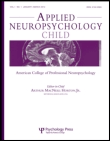
Applied Neuropsychology-Child
Enhancing practices through cutting-edge research.Applied Neuropsychology-Child is a leading academic journal dedicated to advancing the field of developmental and educational psychology, as well as neuropsychology, with a particular focus on child development. Published by Routledge Journals, Taylor & Francis Ltd, this journal provides critical insights into the cognitive and behavioral aspects of children, fostering interdisciplinary dialogue among researchers, clinicians, and educators. With a commendable impact factor and a categorization of Q3 in both associated fields for 2023, the journal plays a pivotal role in shaping current practices and enhancing academic discourse. Access to Applied Neuropsychology-Child is available through subscription, ensuring that high-quality research is disseminated widely amongst scholars and professionals. Since its inception in 2012, this journal has consistently aimed to illuminate the challenges and developments in child neuropsychology, making it an essential resource for anyone invested in the psychological well-being and educational success of children.
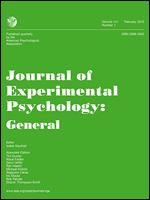
JOURNAL OF EXPERIMENTAL PSYCHOLOGY-GENERAL
Innovating Research in Developmental NeuroscienceJOURNAL OF EXPERIMENTAL PSYCHOLOGY-GENERAL, published by the American Psychological Association, is a leading journal in the field of experimental and cognitive psychology. With an ISSN of 0096-3445 and a robust impact factor that reflects its significant contribution to research, this journal serves as a premier outlet for empirical studies that advance our understanding of psychological processes across development and cognition. Covering a wide array of topics from developmental neuroscience to general psychology, it is categorized in the Q1 quartile across multiple fields, making it a vital resource for researchers, professionals, and students alike. The journal has maintained a consistent publication record since its inception in 1975, continuously freeing insights that shape the future of psychology and related disciplines. With rigorous peer review and high standards of scholarly excellence, JOURNAL OF EXPERIMENTAL PSYCHOLOGY-GENERAL remains an essential platform for disseminating innovative psychological research.

Acta Neuropsychologica
Illuminating the Pathways of Psychological ProcessesActa Neuropsychologica is a notable journal in the fields of Neuropsychology and Applied Psychology, published by the reputable MEDSPORTPRESS PUBLISHING HOUSE since 2005. With an ISSN of 1730-7503 and an E-ISSN of 2084-4298, this journal serves as an essential resource for researchers, professionals, and students interested in advancements in neuropsychological science and its applications. While the journal currently holds a Q4 ranking in both categories for 2023, it continues to provide a platform for cutting-edge research and theoretical discussions, contributing to the understanding of psychological processes and their physiological underpinnings. Situated in Poland, the journal's focus on interdisciplinary approaches offers insights into various therapies, cognitive functions, and neurological assessments, making it a valuable asset for those involved in psychological research. As the field evolves, Acta Neuropsychologica is poised to play a critical role in fostering knowledge dissemination and academic dialogue.